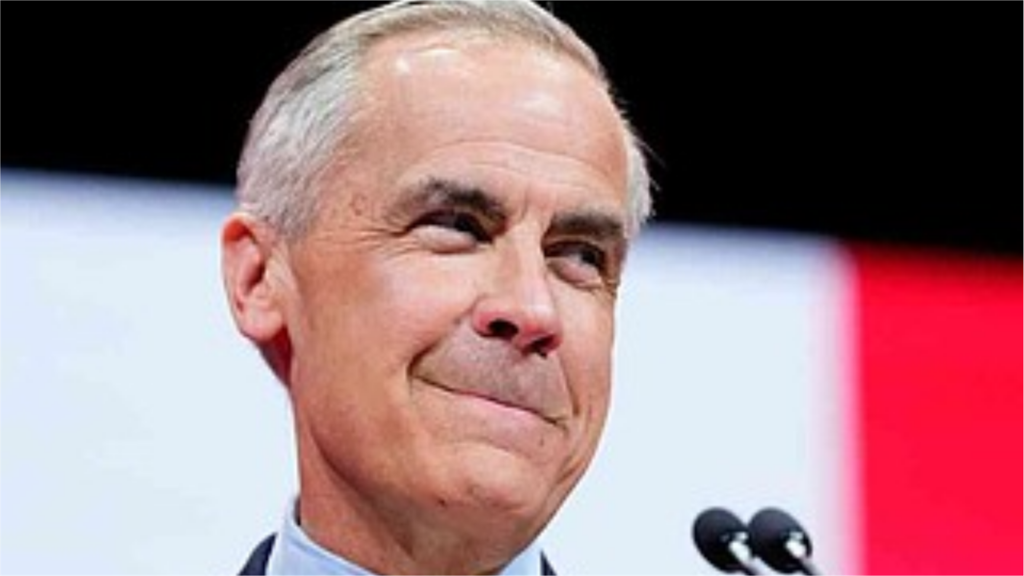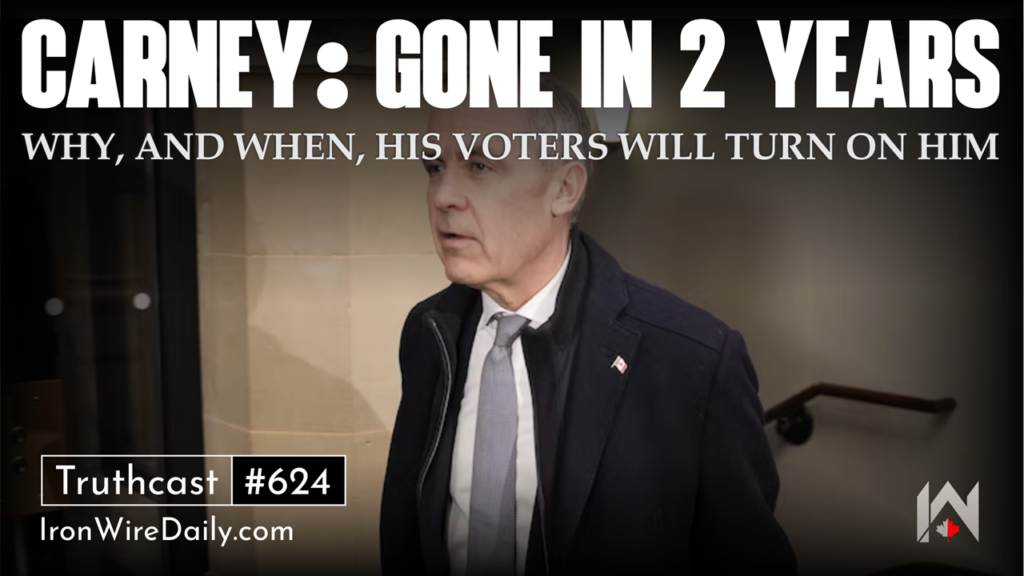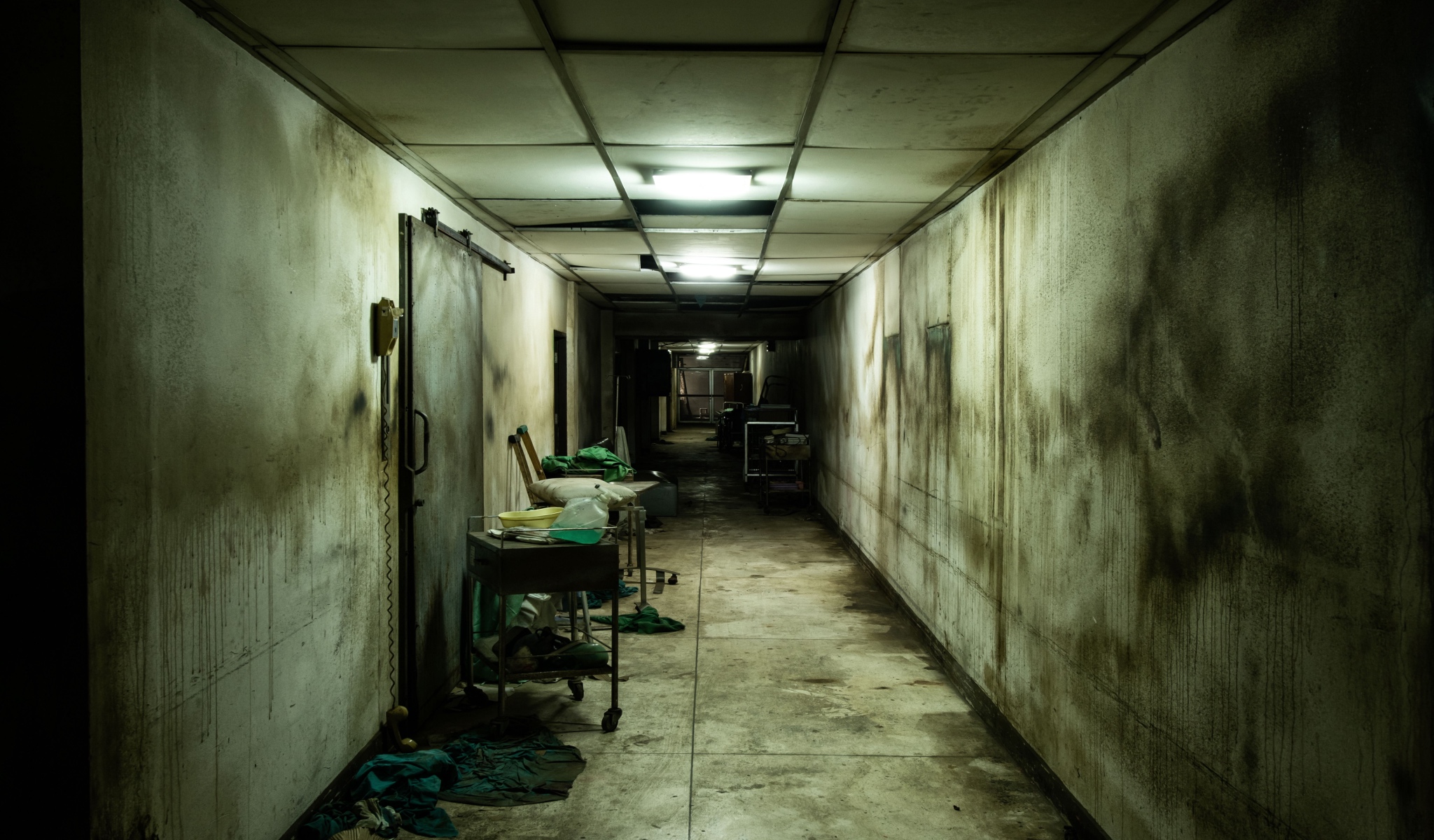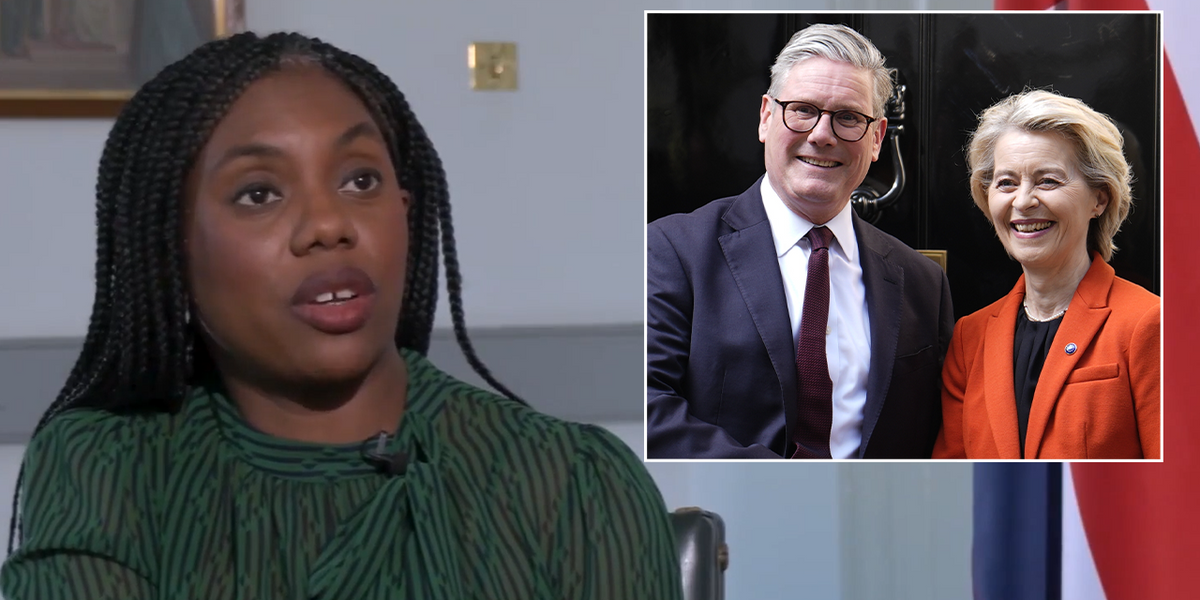Western democracy is being undermined by corporately funded think tanks – The Expose

Western democracy is being undermined by corporately funded think tanks
Western democracy is being undermined from the inside through covert mechanisms and processes that are removing rights and freedoms.
Key to these covert activities are think tanks such as the IPPR, New Economics Foundation and Institute of Fiscal Studies, which are funded by corporate interests. It is these think tanks’ policies which are finding their way into government policy.
In the following essay, Alex Klaushofer highlights how these think tanks are proposing policies that combine higher taxes with behaviour management. These higher tax policies which restrict travel, energy use and diet, for example, reflect the priorities of Net Zero, not the priorities of British citizens.
“It’s something we need to recognise even if we don’t fully understand it. Public-private partnerships – the rise of the corporate state – are not in the interests of ordinary folk. Nor are they compatible with the way of life we’ve enjoyed up to now and envisaged for future generations,” Alex Klaushofer writes.
Let’s not lose touch…Your Government and Big Tech are actively trying to censor the information reported by The Exposé to serve their own needs. Subscribe now to make sure you receive the latest uncensored news in your inbox…
The Hidden Mechanisms of Unfreedom: Part I
By Alex Klaushofer, 4 April 2025
This is the first in a series dealing with the covert ways in which Western democracy is being undermined from the inside.
It’s a kind of analysis which, while relatively new, is developing rapidly. It’s born of the pressing need to shine a light on the unseen mechanisms and processes which are steadily removing rights and freedoms and placing new limits on human agency, exposing them so their workings can be seen.
Only a small number of people are doing this work of exposure, along with an even smaller number of organisations such as UK Column and Together. It’s motivated by the realisation that, if our understanding fails to keep pace with these behind-the-scenes developments, we’re in freedom’s end times. The wolves of our age are finding new ways of catching their prey – if we don’t want to get eaten, we need to understand where they lurk and how they hunt.
The fact that power and resources are increasingly being concentrated in the hands of a tiny minority is no accident. The shift, accelerated under covid, is the fruit of old human impulses to control people and amass wealth combined with new, creative ways of doing so. The internet has enabled people to communicate more freely than ever before, so it’s not surprising that a power-hungry minority is trying to control knowledge and ideas which threaten their interests. In the modern age, power is more about information and perception than brute force – you could never keep eight billion people down if they didn’t consent at some level. The coup currently being attempted works largely through the mind.
The hidden mechanisms of control contrast sharply with the overt ways that democracy is being eroded. A brief detour via the British system should make this clear. In a parliamentary democracy, citizens vote for a delegate who represents them in the seat of power. For that system to function as intended, there must be open communication between constituent and MP, and parliamentarians need to scrutinise laws to ensure they are in the public interest.
The chain of accountability goes: citizen>MP>Parliament, so that laws are made with the broad consent and knowledge of the people. But in the Britain of the 2020s, way of life-changing decisions are being taken behind closed doors without the consent of the public.
Here are three of many examples:
1. Without any public debate, mass surveillance is being introduced. British police now routinely use facial recognition in investigations and are installing permanent cameras on the streets.
2. The World Health Organisation’s Pandemic Treaty and International Health Regulations and amendments, if agreed in May, could usher in an ongoing Covid-style approach to public health.
3. British researchers are spending tens of millions of public pounds on the ultimate mad science: attempting to dim the sun. When did we collectively agree that the source of light and life on Earth be obscured?
What happens if citizens get wind of these developments and approach MPs with their concerns? In a last-ditch test of democracy, this citizen wrote individually to all 650 MPs about the WHO’s proposed power grab. The results were both expected – the MPs who did reply clearly hadn’t read the relevant documents – and unexpected: a significant proportion were under the misapprehension they were “prohibited” from communicating with the wider public. These MPs – the newer, less experienced cohort – saw their allegiance as lying with the high-ups (party, government, corporations, global institutions) rather than the people.
Surely MPs still reply to their constituents? I’ve written to my own MP, now Environment Minister Steve Reed, on three occasions, in 2020 about covid restrictions and the lack of government support for the forcibly-closed performing arts, in 2022 about the WHO proposals and again as part of the 650 MPs I wrote to in 2023. None of these emails got a reply. Until, that is, in this year of 2025 when, after I made a passing comment about MPs having a duty to reply under one of Reed’s Facebook posts, two emails from him arrived in my inbox.
The ultimate expression of technical correctness over meaningful communication? A passive-aggressive way of indicating how unimportant a constituent is? I can’t decide.
Meanwhile, in an almost comic illustration of how democracy isn’t working, I received a letter from one Liam Conlon MP inviting me, as his constituent, to a “community coffee morning.”
Currently, a lot of legislation is going through Parliament which will bring about shifts in the balance of power between citizen and state. These new laws – often reworked bills drafted by the previous government – are proceeding fast and without much scrutiny. Take, for example, the Crime and Policing Bill , which will give the police the power to enter and search premises without a warrant. Meanwhile, the Data Use and Access Bill will enshrine a shift away from the principle that data belongs to the individual and enable public bodies to share our personal information widely.
These examples illustrate the overt anti-democratic trend which has been in process for the last few years and is now accelerating rapidly. When citizens question such developments, the holders of power typically ignore them and carry on with their plans. See the recent events in Bristol, a place close to my heart: when residents objected to being blockaded into their own area, the council sent the police in to impose roadblocks under the cover of darkness.
The overt and covert anti-democratic trends have one thing in common: a profoundly dismissive attitude towards ordinary people. The autocrats of today perceive no need to listen or consult, much less fulfil the will of the voting public: in a technocratic view of the world, “They Know Best.” Their blatant attempts to impose their will at least give people a chance to object and resist, even if that only involves fuming about the need to “vote them out.” By contrast, the hidden mechanisms are building a situation from which, once complete, it’s very difficult to escape. They resemble the wolf putting on Granny’s clothes and giving Little Red Riding Hood the answers she wants to hear. Hidden from sight, or giving the appearance of one thing while doing another, they involve a psycho-social sleight of hand, a manipulation of emotions or values which – so far – has been keeping enough of the people fooled enough of the time.
Once you start looking with your reading glasses on and your rose-tinted specs off, this new sphere of human activity is quite easy to perceive. But its precise operations are hard to put a name to, so bear with me while I try to find the right terms and phrases. I’ve chosen to focus on examples from Britain, not just because they’re the ones I know best, but also because hidden workings emerge most clearly in microcosm – the devil really is in the detail. Nonetheless, they form part of a wider trend which will, if unchecked, become a global reality.
That last point highlights the reason for looking at things which are not pleasant to see. These days I frequently witness people in shock as a sign of the coup that’s in progress breaks into their consciousness for the first time: the police breaking down the door of a Quaker Meeting House seems to have taken some by surprise. I remember that kind of shock when, back in 2020, I was literally floored, lying on the carpet as I tried to process the fact that a British government had put 67 million people under house arrest. Other shocks followed as further developments revealed the depth and extent of the power grab we are facing.
And then came a point when I was no longer shocked.
The expression “forewarned is forearmed” packs a whole psychological process into three words. Your energies are no longer consumed by the need to come to terms with difficult truths, opening up the space for choice and action. Knowledge leads to resilience. You can no longer be floored.
So onwards, to clearer seeing.
Hijacking, infiltration, co-option: these are all imperfect terms for a phenomenon in which an organisation appears to be fulfilling one purpose but is actually doing something else. The organisation may appear to be independent – and may have genuinely been so in the past – but somehow, by dint of money, pressure or a complex bundle of institutional emotions such as the need to belong, the desire to please and to look good, it’s been conscripted to further certain agendas.
The hijacking mechanism is particularly clear in the shift that the think tanks of the UK have undergone. As a journalist specialising in public services in the early 2000s, I followed their activities closely, covering their reports and approaching their staff for comment on government initiatives. I liked think tanks: they were full of policy nerds, keen to think through the implications of ideas that MPs and civil servants didn’t have time to explore properly. And while each had its own political leaning, as a body they formed an independent ecosystem, separate from government and dedicated to the public good. In my then-view, they were a sign of the thriving civil society and democracy that was the envy of the world.
Fast forward to the 2020s and, after a break from journalism, I returned to the world of public affairs to find think tanks acting as arms-length government bodies. Instead of fertilising the public sphere with their own ideas or considering the implications of proposed policies with some objectivity, they now seem to be actively promoting government policy. Their reports are full of details normally worked out by civil servants, and their ostensible independence lends credibility to unpopular ideas.
Take, for example, the Demos report about inheritance tax published in the summer of 2024.
Author Dan Goss argues for an “ambitious reform of inheritance tax” that “could raise more revenue” for the Government. Highlighting the fact that the UK system has “100% relief for owned businesses and agricultural property,” he concluded there was a need to “rework the exemption.” And lo, Starmer’s Farmer Harmer tax was born. As David Craig pointed out in the Daily Sceptic, the Demos report outlined the very policy the Chancellor was to announce in the Budget three months later.
Think tanks have acquired a marked fondness for advocating higher taxes. In October 2024, the influential left-leaning Institute for Public Policy Research (“IPPR”) published a blog in which Mark Lloyd, a former civil servant who had helped to develop the “sugar tax,” argued that ALL foods the state deemed to be unhealthy should be taxed. The “unhealthy food levy” would use a “traffic light” labelling system to indicate the product’s levels of sugar, salt and fat on which the level of tax would be based.
“The tax should explicitly exclude fruits, nuts and veg that are fresh, dried, frozen or unprocessed … roasted salted peanuts might be liable for the tax, whereas a packet of unprocessed cashew or walnuts would be exempt,” explained Lloyd. “The same could go for processed and unprocessed meat (e.g. a chicken breast fillet vs a chicken burger).” Exemptions, he added, should be limited.
Before you start stockpiling your favourite treats, I should say I don’t think this idea will get any political traction. But the fact the IPPR saw fit to air it is significant: the think tanks of Before Times would never have dreamt of suggesting this kind of government interference in our lives. Following the “polluter pays” principle, which underlies clean air schemes, the proposal discriminates between those who can pay and those who can’t. Hence, the wealthy would be able to buy themselves as much cured meat and chocolate as they liked, while the poor would have to cook from scratch.
Not to be left behind, the same month the New Economics Foundation published a report arguing for a frequent flying levy across Europe (on top of existing flight taxes, of course). People would be allowed one return flight a year “free,” but thereafter pay a surcharge for every additional trip, with higher rates for long-haul flights. The policy, the authors of Stay Grounded suggested, would bring about a six-fold increase in aviation tax revenues while persuading the public to fly less.
Was it a coincidence that the Climate Change Committee (“CCC”), the quango that advises the government on climate change measures, recommended more flight taxes in its Seventh Carbon Budget a few months later?
Then you have the Institute of Fiscal Studies (“IFS”), that austere body pronouncing on macro-economics, recommending that we no longer be allowed wood-burning stoves in our homes.
Recommendations for policies which combine higher taxes with behaviour management have repeatedly been issued from think tanks in the first months of the new government. The policies, with their restrictions on travel, energy use and diet, reflect the priorities of Net Zero, that strange child born in academia only fifteen years ago. Why?
A good way of understanding the interests at work is to follow the funding.
In 2023, the IFS received over half of its funding from UK government departments and the Economic and Social Research Council, itself government-funded, with other major funders including abrdn Financial Fairness Trust, a charitable foundation endowed by abrdn Asset Management. [On 12 March 2025, “abrdn” changed its name to “Aberdeen.”]
The Demos report on inheritance tax was funded by the abrdn (yes, this IS how they spell their name) Financial Fairness Trust, a charitable foundation endowed by abrdn Asset Management, one of the biggest landowners in the UK. In a 2018 report, the company bemoaned the fact that the ownership of agricultural land by families – i.e. farmers – tended to present a “challenge” to “purely financial owners” wanting to acquire it.
The general funders of Demos (which are only listed up to 2022) also include the abrdn Financial Fairness Trust.
The IPPR’s larger funders include – wait for it – the abrdn Financial Fairness Trust, Rockefeller Philanthropy Advisers, Gates Foundation and Open Society Foundations.
The Policy Exchange doesn’t list its funders, which is a shame because it seems particularly keen to assist the government to increase tax revenues and manage our behaviour. The think tank has put its name to three reports on pay-per-mile, the monumentally unpopular idea of charging road-users by the mile.
Published in October 2024, ‘Driving Growth: The case for road pricing in the UK’ tackles this head-on: “This paper lays out not just the case for change, but also what has been missing from the debate so far – a political strategy for achieving it.” The authors argue the government should replace road tax and fuel duty with “a full, nationwide system of road pricing, involving different prices for the use of different roads at different times of day, and different prices for different types of vehicle, and with concessions for designated types of driver.” All vehicles would be fitted with an “on-board unit” to record their road usage and the existing ANPR [automatic number-plate recognition] camera network and penalty regime would be used to “ensure compliance.”
Variable road pricing is key to the purpose of the policy: to force drivers to change their behaviour:
The aim of such a sophisticated system of road pricing is to make the individual motorist confront the full social costs of their decision to drive a car at a particular time and place. The intention is to incentivise motorists to make their journeys at different times, or on different roads, thereby reducing congestion and making better use of our infrastructure.
Driving Growth: The Case for Road Pricing in the UK, Policy Exchange, 2024, pg. 8
Should the government lack the nerve to impose the policy in its full form, the authors have a sneaky suggestion about how to get round the lack of public acceptance. Using the “low controversy approach” of “grandfathering,” only new electric vehicles (“EVs”) would have a fitted tracking device and pay the new tax – after all, not many people tend to buy new EVs. Then it would be introduced for heavy goods vehicles (“HGVs”) and finally for all other vehicles. and by the time there were enough people affected to protest, it would be too late.
How did the right-of-centre Policy Exchange, which claims to be the UK’s most influential think tank, get to be so shamelessly authoritarian?
If we zone in further, we can see how think tank research, government policy and corporate funding all come together to create a certain outcome.
In 2019, the Policy Exchange published a report entitled ‘Extremism Rebellion’ addressing the “subversive agenda” of environmental activists such as Extinction Rebellion. The “civil resistance model” of their protest style would eventually lead to the breakdown of democracy and the state, argued authors Walton and Wilson. Therefore, new laws to restrict public protest were urgently needed, giving the police powers “to place restrictions on planned protest and deal more effectively with mass lawbreaking tactics (including incitement and conspiracy offences).”
It took a while – there was covid to deal with, after all – but in 2022, Parliament passed the Police, Crime, Sentencing Act which included recommendations from the Policy Exchange report. The law created a new statutory offence of public nuisance, including that of “conspiring” – in other words, just talking or posting – and gave the police the power to impose conditions on protests, including when they should start and end, and on those organising or attending them. If the police consider an assembly or procession might cause “disorder, damage, disruption, noise impact or intimidation” they can effectively stop it from taking place. As the writer Kenan Malik put it, the Act has reduced the right to protest to “whispering in the corner.”
It often takes a while before citizens feel the impact of a new law. So, fast forward to 2025, and the police force entry to a public meeting held at a Quaker’s Meeting House and arrest six women “on suspicion of conspiracy to cause a public nuisance.” The women are handcuffed and detained in cells, while more police go and search their student rooms.
Now, why would a think tank dedicate some of its limited resources to creating such an authoritarian situation? Part of the answer may lie with the bit of its funding we do know something about: an investigation by OpenDemocracy found that Policy Exchange had received a donation of £25,000 from the oil company ExxonMobil two years before the report was published. Oil companies do not like high-profile activism which threatens their business. The authors of the report have backgrounds in counter-terrorism, one being a senior policeman. And governments tend to like acquiring more power. A confluence of interests has formed.
The fact that the author of Policy Exchange’s ‘Road Miles’ report is president of the Automobile Association (“AA”) takes us down another illuminating path. King heads the AA’s public affairs team which campaigns and lobbies on driving issues. As you might expect, the AA website says that “drivers can count on us to champion their interests.”
Surprising, then, is the AA’s call for the introduction of a “graduated driving licence” which would place restrictions on young drivers and ban the under-21s from carrying passengers their own age. The AA’s chief executive, Jakob Pfaudler, went so far as to write to the Transport Secretary to ask her to impose the policy. The RAC is also on board, slating some of its potential customers for being “overconfident.”
Why motoring companies are campaigning for restrictions on drivers rather than sticking to the business of selling breakdown cover is a question worth pondering. It illustrates something of much wider significance: the growing alliance between corporations and the state. While banks and government, technology platforms and government, and supermarkets and government come from different positions, they are finding common cause in an attitude to the public which sees us as – how shall I put it? – as somewhere between children and livestock, there to be lectured and corralled, all the while providing the resources for their projects through taxes.
It’s something we need to recognise even if we don’t fully understand it. Public-private partnerships – the rise of the corporate state – are not in the interests of ordinary folk. Nor are they compatible with the way of life we’ve enjoyed up to now and envisaged for future generations.
To get back to basics: you can’t have a functioning democracy when powerful vested interests are pulling the strings from behind the scenes. Genuine self-governance necessarily entails transparency and accountability; without them, rogue elements and nefarious agendas can take over.
In this piece, I haven’t mentioned the think tank of think tanks, a UK-based organisation which is playing a big part in the governance of Britain despite the fact that no elections or mechanisms of accountability are involved. Big money and global connections are! Can you guess which one it might be? The workings of this organisation illustrate a number of hidden mechanisms, so I’ll leave it for another day.
Part II of this series will deal with a particularly dark art being deployed by the power-hungry: that of manufacturing consent.
About the Author
Alex Klaushofer is an author and journalist who has written extensively on social and religious affairs and politics in Britain and the Middle East. She writes regular essays about our changing times on the Substack page ‘Ways of Seeing’ which you can subscribe and follow HERE.
#image_title
” data-image-caption=”
#image_title
” data-medium-file=”https://i0.wp.com/expose-news.com/wp-content/uploads/2025/05/FtMay13a.png?fit=300%2C169&ssl=1″ data-large-file=”https://i0.wp.com/expose-news.com/wp-content/uploads/2025/05/FtMay13a.png?fit=639%2C359&ssl=1″>
The Expose Urgently Needs Your Help…
Can you please help power The Expose’s hosest, reliable, powerful and truthful journalism?
Your Government & Big Tech organisations
try to silence & shut down The Expose.
So we need your help to ensure
we can continue to bring you the
facts the mainstream refuse to…
We’re not funded by the Governmenrt
to publish lies and propagandas on their
behalf like the Mainstream Media.
Instead we rely solely on your support. So
please support us in ourt efforts to bring
you honest, relisble, investagative journslism
today. It’s secure, quick and easy…
Please just choose your preferred
method to show your support…
While previously it was a hobby culminating in writing articles for Wikipedia (until things made a drastic and undeniable turn in 2020) and a few books for private consumption, since March 2020 I have become a full-time researcher and writer in reaction to the global takeover that came into full view with the introduction of covid-19. For most of my life, I have tried to raise awareness that a small group of people planned to take over the world for their own benefit. There was no way I was going to sit back quietly and simply let them do it once they made their final move.















